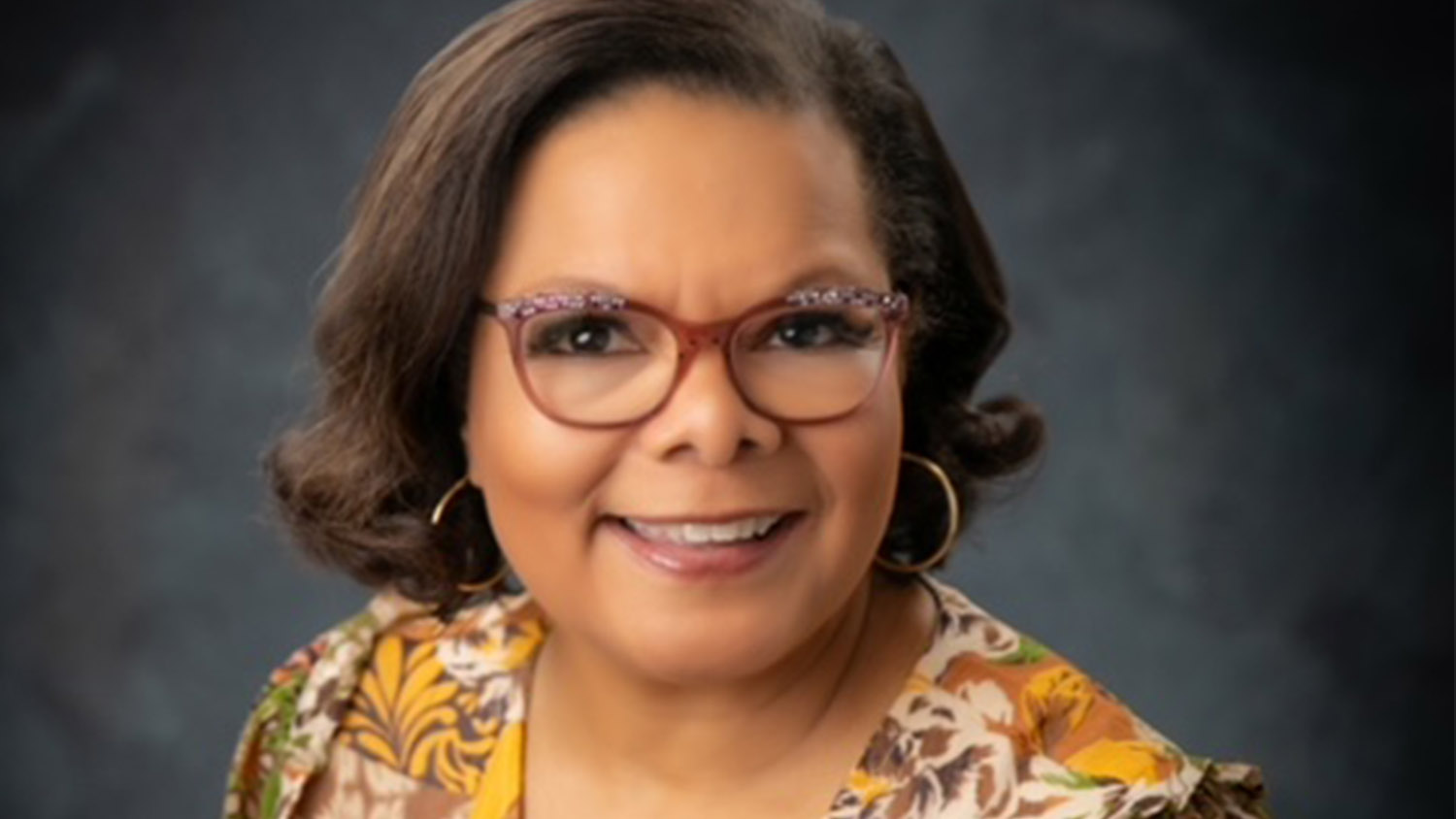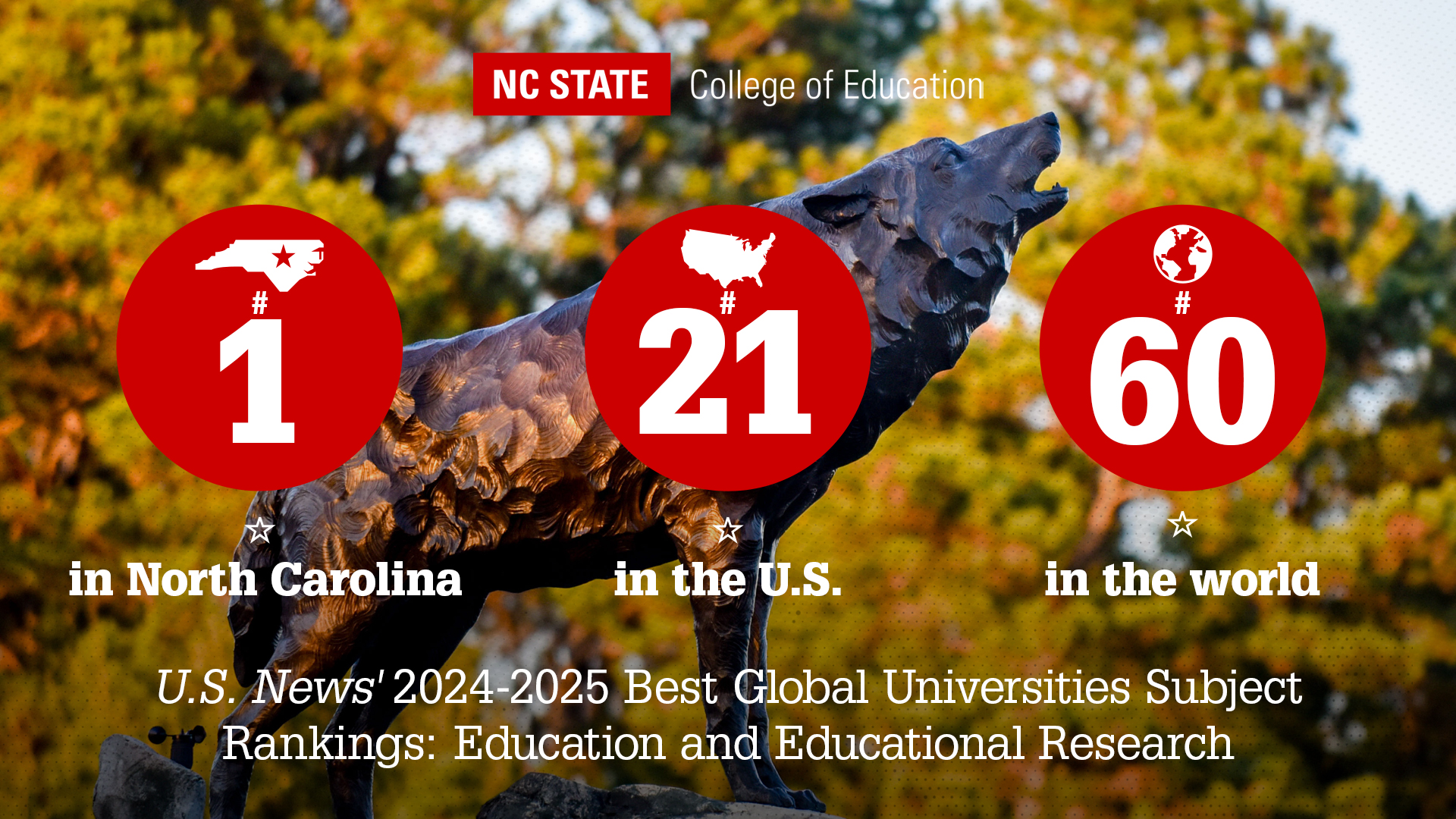Faculty, Alumna in Counselor Education Program Honored with Awards from Chi Sigma Iota

Faculty and an alumna of the NC State College of Education’s Counselor Education program were recognized with two awards from the Chi Sigma Iota Counseling Academic and Professional Honor Society International during their annual meeting in March 2021.
Stan Baker, Ph.D., professor of counselor education at the NC State College of Education, was selected as the recipient of Chi Sigma Iota’s Thomas J. Sweeney Professional Leadership Award.
The Thomas J. Sweeney Professional Leadership Award recognizes those who have strengthened, expanded and enhanced the counseling profession at local, state, national or international levels through their vision, leadership and concern for others. Baker has been the advisor of Nu Sigma Chi, NC State’s chapter of Chi Sigma Iota, for the past 23 years.
“I take pride in a situation in which my mentoring and nuanced leadership roles have left the impression locally and nationally that I am a recognized leader,” Baker said. “Given that I’ve been on the national professional scene in many ways over the past 50 years, including elections, committees and publications, I realize the award is a recognition, in part, for the total package. On the other hand, I think it may be a recognition for the mundane, year-round role that chapter advisers play in the workings of the international organization so, in my mind, the recognition may be for me and all the other chapter advisers.”
In addition to receiving the Professional Leadership Award, Baker was also recognized as a co-author of a paper that received Chi Sigma Iota’s Outstanding Article Award.
“Multicultural and Social Justice Counseling Competencies: Institutional Interventions for Professional School Counselors” was authored by Stephanie Leibowitz-Nelson ’20PHD, Baker and College of Education Professor of Counselor Education Sylvia Nassar, Ph.D, and published in the Journal of Counselor Leadership and Advocacy in February 2020.
The paper integrates the multicultural and social justice counseling competencies with other models and provides examples and recommendations for how counselors can carry out the seven multicultural and social justice institutional and counseling interventions.
“While this award was a complete surprise, it reflects trust in God on a personal note, years of perseverance, tireless collaboration and a hopefulness for all young people that an article providing knowledge to influential adults to acquire social justice competence and implement equitable school practices was recognized as exemplary,” Leibowitz-Nelson said.
The award-winning paper originated in Baker’s Professional Issues in Counseling course, in which students were required to write about an innovative idea and submit the manuscript to a relevant journal for potential publication.
The paper was rejected on first submission, Leibowitz-Nelson said, and then put aside because some personal and medical issues in her life took priority. As she was working on her dissertation later on, however, Nassar encouraged her to revisit the article from Baker’s class which was eventually accepted by the Journal of Counselor Leadership and Advocacy.
Leibowitz-Nelson, who currently works as a professional high school counselor in the Wake County Public School System, said she believes Baker’s help in fine tuning the article and rich content suggestions from Nassar are what helped the paper go from a class assignment to an “outstanding article.”
“Not only did I grow as a researcher and a writer, but I also experienced the scholarly writing process firsthand under great mentorship and encouragement,” she said. “I remember electronically submitting a manuscript for the first time in Dr. Baker’s office. I was afraid to push the submit button, fearing mistakes. He laughed and it put me at ease as I remembered that experiencing any failure is what helps you succeed the next time.”
- Categories:


